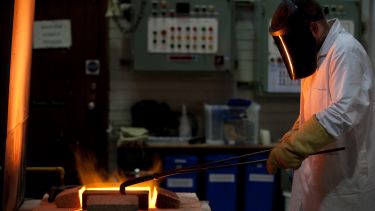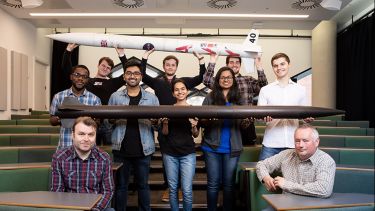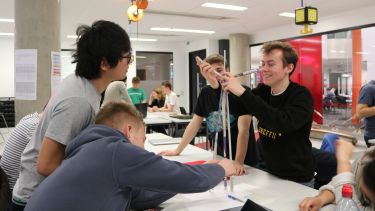Study engineering at Sheffield
We are passionate about developing world-leading engineering professionals who will lead on the delivery of a sustainable future. Our teaching brings together fundamental scientific knowledge, creative thinking, practical experience and problem-solving skills to create outstanding engineers.












